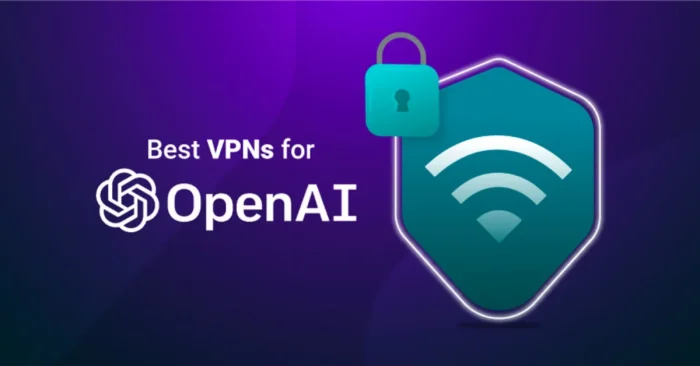Overview
AI tools for VPN alternatives provide smarter, faster, and more secure ways to protect online privacy and data without relying solely on traditional VPNs. These tools use artificial intelligence to analyze traffic patterns, detect suspicious behavior, and create encrypted tunnels dynamically. Unlike standard VPNs, AI-driven solutions optimize speed, reduce latency, and adapt to real-time network conditions. They also identify malicious websites, block trackers, and safeguard sensitive information during browsing or data transfer. Businesses and individuals benefit from AI-based alternatives as they combine advanced security, user-friendly access, and high performance for safer internet usage worldwide.
1. AI in Traffic Encryption
AI tools encrypt online traffic intelligently by adapting to network conditions. Unlike static VPN encryption, AI ensures faster connections without compromising security. It automatically selects the best encryption protocol based on user activity, whether streaming, gaming, or file sharing. This smart encryption provides seamless browsing while maintaining strong protection against hackers and surveillance attempts globally.
2. AI for Network Anomaly Detection
AI monitors data traffic continuously, identifying abnormal patterns that may indicate attacks or leaks. Instead of just hiding IP addresses like VPNs, AI analyzes packets in real time to prevent breaches. This proactive detection ensures users remain safe from malware, phishing, and data interception, offering stronger and more adaptive protection than traditional VPN technology.
3. AI in Decentralized Networks
Some AI-based VPN alternatives rely on decentralized peer-to-peer networks instead of centralized servers. AI manages routing, optimizes traffic flow, and prevents congestion. This decentralized approach reduces risks of server shutdowns or data logging. Users benefit from faster speeds, higher privacy, and resistance against censorship, making decentralized AI networks a strong alternative to standard VPNs.
4. AI for Smart IP Masking
AI tools create dynamic IP masking instead of static VPN IPs that can be blocked easily. By rotating IPs intelligently and analyzing blacklist databases, AI ensures users can access restricted sites securely. This adaptive method makes it harder for websites or governments to detect and block connections, providing long-term reliability in restricted environments.
5. AI in Cloud-Based Security
AI-driven cloud security platforms act as VPN alternatives by encrypting traffic and filtering malicious activities at the cloud level. Unlike traditional VPNs that route all data through fixed servers, AI distributes workloads across global servers dynamically. This improves speed, scalability, and protection, making cloud-based AI security highly effective for both businesses and individual users.
6. AI for Smart Geo-Unblocking
AI enhances geo-unblocking by analyzing streaming platforms’ detection methods and adjusting connections instantly. While traditional VPNs often get blocked, AI-driven tools use advanced algorithms to mimic legitimate traffic. This ensures users access region-restricted content without interruptions. It benefits travelers, remote workers, and entertainment users by providing reliable, high-speed access across global networks effortlessly.
7. AI in Identity Protection
AI tools safeguard digital identities by monitoring personal data and login activity. Unlike VPNs that mainly hide IP addresses, AI detects suspicious usage of credentials across platforms. If a leak or breach occurs, AI alerts users and recommends actions instantly. This ensures strong protection for sensitive information, enhancing privacy beyond traditional VPN capabilities.
8. AI for Bandwidth Optimization
AI optimizes bandwidth by analyzing user activity and prioritizing essential traffic. Instead of slowing down connections like VPNs, AI ensures smooth streaming, gaming, and conferencing experiences. It manages background traffic intelligently, balancing performance and security. This makes AI-based VPN alternatives ideal for users needing both privacy and high-speed internet simultaneously without compromise.
9. AI in Threat Intelligence Integration
AI integrates global threat intelligence into VPN alternatives, identifying new cyber risks instantly. By studying global attack patterns, phishing domains, and malware campaigns, AI blocks harmful sites before users even connect. This proactive security goes beyond VPN privacy, offering full protection against cyberattacks. It strengthens online safety for businesses and individuals across different industries.
10. AI for Adaptive Privacy Controls
AI tools give users adaptive privacy settings that adjust automatically. For example, when using public Wi-Fi, AI increases encryption levels, while at home it reduces latency for faster browsing. This intelligent flexibility ensures maximum protection without manual configuration. By balancing privacy and performance, AI-based VPN alternatives provide an improved experience for modern internet users.
(FAQs)
Q1: Can AI fully replace traditional VPNs?
Yes, in many cases. AI offers better speed, adaptive security, and real-time protection, though VPNs are still useful in some scenarios.
Q2: Are AI VPN alternatives safe for businesses?
Yes, they provide enterprise-level security, real-time threat monitoring, and cloud-based scalability for corporate data protection.
Q3: Do AI-based VPN alternatives improve streaming access?
Yes, AI ensures smart geo-unblocking and faster connections, making them more reliable than traditional VPNs for streaming platforms.
Learn More About AI Course https://buhave.com/courses/learn/ai/






